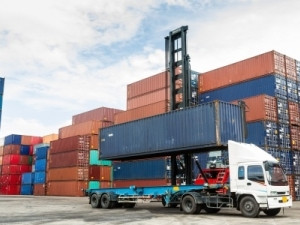
CNB Technologies, an Indian-based start-up in the business of tracking container movement at freight stations and inland container depots, plans to expand its footprint to SA.
CNB, which clocked $1 million in revenue last year, plans to expand to SA this year through its existing customer base. Apart from SA, it is also targeting Brazil, Chile and Argentina, and expects to double its revenue.
The company puts an RFID tag in the container with its details, and readers or sensors on the container handling equipment, such as cranes and trucks. It notes this helps people handling the container freight station or depot to track the exact location of the container.
The data on exact container location is tracked by the readers through software with the use of WiFi or GPRS-based telecom networks.
CNB provides automation solutions based on real-time information technologies to the port and container shipping industry. Its Hawk product focuses on automating container yards to raise efficiency and safety.
According to CNB, a container yard generally ranges from 10 acres to 200 acres or even more, where containers are stacked.
"There are thousands and thousands of containers stored over each other in these yards. These containers keep shuffling and moving," says Rajesh Kumar, co-founder of CNB Technologies.
"Hawk automatically records the complete shuffling of containers in real-time. Based on this data, the solution enables scientific yard planning and management of the complete container yard."
CNB claims it is able to reduce the number of moves for each container within a yard - from an average of seven-eight to five-six. This results in fuel saving, as one-two movements per box per crane consumes one to two litres of diesel, the company says.
It adds this improves the efficiency of logistics service providers, lowering the time managed, and helps make a container yard "pedestrian-free".
Share